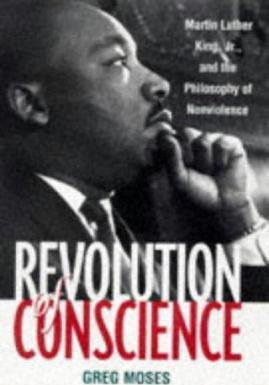
Revolution of conscience : Martin Luther King, Jr., and the philosophy of nonviolence
Available Copies by Location
| Location | |
|---|---|
| Victoria | Available |
Browse Related Items
- ISBN: 1572301694
-
Physical Description
print
xviii, 238 pages ; 24 cm --. - Publisher New York : Guilford Press, [1997]
- Copyright ©1997
Content descriptions
| Bibliography, etc. Note: | Includes bibliographical references (pages 229-233) and index. |
| Immediate Source of Acquisition Note: | LSC $33.53 |
Series
Additional Information

CHOICE_Magazine Review
Revolution of Conscience : Martin Luther King, Jr. and the Philosophy of Nonviolence
CHOICE
Copyright American Library Association, used with permission.
Divided into five chapters on various aspects of Martin Luther King Jr.'s social and political philosophy, this scholarly work focuses on King's changing view of the role of nonviolent direct action in bringing about social change. By citing King's later texts, Moses (philosophy, Marist College) convincingly argues that, after being jeered by black power advocates in Chicago, King expanded the concept of direct action to include the transformation of values as a broader objective. Moses nonetheless opposes the Marxist interpretation of King's move to expand the objectives of the Civil Rights struggle. He usefully considers the positions of A. Philip Randolph and Ralph Bunche on the race-class question, situating King's philosophy in a tradition of African American thought. Although the earlier chapters on Douglass and Du Bois detract more than they contribute to Moses' interpretation, his discussion of Wallace Thurman's philosophy of liberation as the primary influence on King's doctrine of nonviolent direct action provides a valuable insight. As a follower of King, Moses maintains that King's notion of nonviolence is still a viable means of social change. Unfortunately, the shortcomings of King's doctrine, often cited by detractors, seem to have outstripped Moses' endeavor to establish this belief. Upper-division undergraduates, graduate students, and faculty. T. L. Lott; San Jose State University


